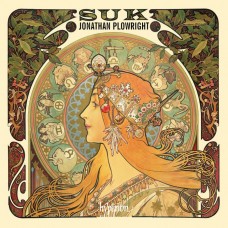您的購物車沒有添加專輯!
搜尋
蘇克: 鋼琴音樂專輯 喬納森.普洛萊特 鋼琴 / Jonathan Plowright / Suk: Piano Music
專輯編號: CDA68198
專輯類型: 單CD
發行年份: 2018
國際條碼: 0034571281988
音樂家:
庫存狀態: 有庫存
|
The early works of Josef Suk channel something of the same life-affirming Czech spirit also characteristic of Dvořák, his teacher and father-in-law. Jonathan Plowright makes a persuasive case for a composer whose music is at last emerging from the shadows.
|
編號 |
曲目 |
長度 |
作詞 |
作曲 |
演奏 |
樂團 |
演唱 |
指揮 |
試聽 |
|---|



